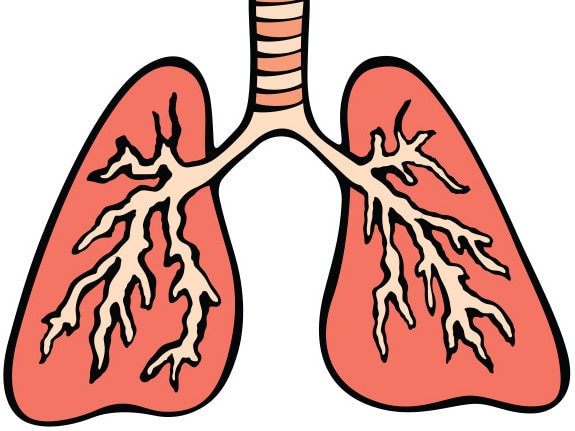27 Rules for Living: small changes that lead to big impact
Want to keep your body and mind in top form with as little effort as possible? Experts swear by these quick fixes to make a real difference to our health and wellbeing.

Want to keep your body and mind in top form with as little effort as possible? Experts swear by these quick fixes to make a real and lasting difference to our health and wellbeing.
27 Rules for Living
1. Breathe for your nervous system
“The more research I’ve seen being published on the vagus nerve, our body’s longest nerve that runs from the brain to the abdomen, and its impact on our physical and mental health, the more conscious I’ve been about building in small activities into my day that stimulate it,” says British health writer Alice Wilkinson. “Box breathing – where you breathe in for four, hold for four, out for four, hold for four – switches ‘on’ our parasympathetic nervous system, or rest-and-digest system, making it a powerful psychological intervention when you feel stressed or overwhelmed.”
Box breathing is something you can do anywhere, even on a busy train or bus.
“After a few rounds, I definitely start to feel the calming effects when my mind is busy,” Wilkinson says.
2. Swap your morning coffee for cold brew
Cold-brew coffee is a great metabolism booster and less bitter, so no need for added sugar. It’s also easy to make in batches – it takes about five minutes. Pop one in the fridge and drink it the next morning – no less than 90 minutes after you’ve woken up, and preferably after breakfast, to stave off an afternoon crash.
3. Do a food and fitness schedule for the week ahead
Set out a list of healthy meals for the week to shop for and decide when you’re going to hit the gym or take a brisk stroll. It might sound basic, says personal trainer Dalton Wong, “but when it comes to anything that your mind and body have to engage with, it’s best to get the thinking out of the way”.
4. Make and eat a “quick pickle”
Cut up a cucumber and dip it in apple cider vinegar, then top it off with a good pinch of salt. Leave it for five minutes and then eat it. The vinegar is a natural probiotic and can brighten your skin while regulating your blood sugar and even lowering your cholesterol. (Cucumber itself has reams of benefits too.)

5. Feel the benefits of multi-directional lunges
After too long a spell of binge watching TV on the sofa or sitting at a desk, try this quick trick: stand up and step one foot a metre or so in front of the other, then kneel down with your back leg until your knee hovers above the floor. Then try it backwards, sideways and at a 45-degree angle from your hips. Congratulations: you have just completed a set of multi-directional lunges and recruited every muscle in your legs to do so.
6. Do Dalton Wong’s speedy sofa workout
Sofa planks, with your feet up on the seat and hands on the floor; squats, working your knees and glutes as you sit down and stand up; one-legged squats, where you put your back foot up on the couch and squat back into it; push-ups, putting your hands on the arm of the sofa and pushing your body away.
7. Try five minutes of strength training
We’re told strength is particularly important for middle-aged women but did you know that even five minutes each day is enough to condition your muscles? Try 10 push-ups, 10 sit-ups or 15 squats in a minute, five times over, to strengthen your upper body and core.
8. Do the monkey swing for an energy boost
Last year, 85-year-old model and fitness expert Diana Moran, the so-called Green Goddess, revealed in an interview that she starts every day with her “monkey swing” (there’s a video of this on YouTube). Stand with your arms above your head, then gently fold forward, letting your arms fall toward the floor before swinging them back up again to standing. Go as fast or slow as you like, as many times as you like.
9. Block racing thoughts with “thethethethe”
When trying to get off to sleep, or waking up in the early hours, it can be unwanted thoughts that keep us from switching off. Try repeating “thethethethe” over and over again in your head: it’s boring and monotonous enough to do without your full attention, while effectively banishing unwanted thoughts, sending you off to sleep.
10. Hop on the spot to counter osteoporosis
One of the best ways to maintain bone mass – which becomes crucial at 40 – is through impact exercise. Health editor and writer Sharon Walker, who started hopping on the spot for five minutes a day last year to ward off osteoporosis, says: “Bones are living tissue, so it’s possible to rebuild them, even as you age.”
11. Introduce the physiological sigh
A physiological sigh – two very sharp inhales through your nose and a slow breath out, making a loud ahh-ing sound – will slow your heart rate. Just a few is enough to calm anxiety, but repeating this several times throughout the day will help to promote better sleep at night, reduce overall stress, encourage relaxation and enhance mood.

12. Ask your friends direct questions
We all have a friend whose company drains us more than it fills us up. Georgina Sturmer, a counsellor, advises asking direct questions to encourage their behaviour to change. When someone is playing the victim and expects a solution from you, try: “How are you planning to handle that?” Or with a negative over-sharer: “That sounds challenging, what’s going well for you?”
13. Top off meals with dried mushrooms
For an easy way to get the micronutrients she needs, writer Susanna Galton adds a mix of ground dried mushrooms and seeds to meals. Mushrooms provide magnesium, B vitamins and vitamin D, as well as the powerful antioxidant selenium. Galton feels fuller and more energised and a small serving “can make the most basic meal feel like a well thought-out, balanced plate”.
14. Drink a hot cup of vegetable water
Save the water left over after boiling your peas or broccoli and tip it into a cup to drink. “It’s the sort of thing our grandmothers used to do,” says columnist Xanthe Clay. You get to consume all the vitamins that leach out of your veg during the cooking process. You could also try bone broth (chicken or beef stock) “which is very high in protein for few calories”.

15. Tuck your chin in on your commute to alleviate stubborn neck pain
When we crane over our phones on the bus or train every day, we’re exerting the force of a bowling ball on our necks, causing stiffness and stubborn pain. Instead, sit down (or at least stand up straight) and tuck your chin into a slight nod when you’re on your phone. This position keeps your head in the right place above your shoulders. Don’t worry, the double chin it gives you will be brief (still, it’s probably not the best time to take a selfie).
16. Give your teeth a full five minutes of cleaning care
In the morning rush, many of us cut our tooth-brushing time from two minutes to one. The optimum amount of time we should be spending on our teeth each time we brush for the best tooth and gum health is actually three to four minutes. Spend five minutes brushing and flossing to understand how long it really should take. Top it off with a probiotic mouthwash to feed all the tooth-protecting bacteria that live in your mouth and kill off the ones that cause bad breath.
17. Have a kitchen cupboard audit
Throw out any food that’s past its use-by date and restock with wholefood ingredients. Everything you need for a nutritious meal should be there for when you’ve missed a grocery run: tinned tomatoes, mackerel, minestrone soup, whole-wheat pasta, chickpeas, butterbeans and tinned fruit for dessert.
18. Whip up a quick berry compote
Make a compote from frozen berries, grated apples and powdered cinnamon “rather than lots of sugar”, suggests Clay. Or use leftover cranberry sauce, packed with antioxidants and vitamin C. It only takes five minutes on the hob over a medium heat, but it’ll keep in the fridge for a few days. Spoon it on to toast or porridge.
19. Get down low for better digestion, mobility and flexibility
Getting into a deep squat is a natural and safe way to encourage movement through your digestive system, while training your mobility and helping your joints to loosen up, especially if practised regularly. Try holding this position for as long as you can, seeing how low you can go. (If you struggle with your balance, try holding on to an open door while you do it.)
20. Do this quick posture trick
Put your hands up into a Y-shape above your head and draw your shoulders back. Then put them in a cactus shape, with your elbows bent and hands up, and pull your elbows back and forth. After that, stick your arms out and do the same. This should help to reset your spine and ease the tension in your neck.
21. Eat an apple, core and all
Did you know that the core of an apple contains a lot of gut-friendly probiotic material as well as soluble fibre (which doesn’t break down in your gut so is more beneficial)? It takes only five minutes to eat one every day, so make sure you don’t stop chomping when you get to its centre. Definitely don’t peel it either, as most of the vitamins and antioxidants in an apple are found in its skin. So when they say eat an apple a day, it means the whole thing.
22. Try blue light glasses
Research suggests that blue light blocking glasses may help reduce eye strain and can improve sleep quality – helping to offset the effects of greater use of LED lighting and screens. A school in the UK has even handed them out to students, as energy-saving light bulbs and digital learning tools are also thought to be disrupting kids’ circadian rhythms.

23. Speaking of gut-friendly fibre …
It’s time to embrace wholegrains again. Women should eat 25g of dietary fibre a day and men at least 30 grams. But with the rise of low-carb and keto diets has come a diminished emphasis on wholegrains – one of the best sources of fibre, says The Australian’s Health editor Natasha Robinson. “Critical for a diversity of microbes (important given our growing understanding of the role of the gut in chronic disease and mental health) – wholegrains are also great for weight control and there’s the longstanding evidence that this fibre is preventive of heart disease”, Robinson says.
.
24. Check your shadow to make sure you’re getting your daily dose of vitamin D
If your shadow is longer than you are tall, then the sun isn’t high enough in the sky for its rays to penetrate your skin to produce vitamin D, says writer Jack Rear. Take a moment to check out how it stands when you’re outside. Then, if you have a long shadow, try to change the time of your walk, or make sure that you take vitamin D supplements.

25. Become a super-ager: do a word puzzle a day
What if cognition didn’t gets worse as we got older? For a little over a decade, scientists have been studying a subset of people they call “super-agers” – individuals aged 80 and over but with the memory ability of someone 20 to 30 years younger. A big ingredient for healthy ageing is staying ‘mind active’. Think advanced education, learning a new skill, playing word games or puzzles. “Keeping the mind active is one of the core ways to help reduce, reverse or postpone symptoms of frailty,” says Dr Rajna Ogrin from the Bolton Clarke Research Institute. “Lifelong learning with others has a dual benefit: it provides the opportunity to foster social and community connections and improve quality of life, because strong social networks and meaningful interactions improve wellbeing and protect against cognitive decline.”
26. Add an extra step to your squats
Elevated squats can ward off back pain. Put a weight plate (or chunky book) under your heels before squatting as you usually would. Keep your knees bent outwards to feel the burn as you rise back up. You’ll feel stronger and more energised after a week at your keyboard.
27. Take a moment in your day to reset
Stand still on the escalator while other commuters pass by. It can reset mood and mind and mean you’re ready to go again when you reach the top. Moments of calm in a busy day are fleeting. But thirty seconds of stillness is all it takes to make a difference.



To join the conversation, please log in. Don't have an account? Register
Join the conversation, you are commenting as Logout